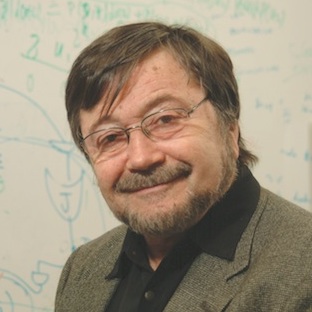Dialogue between Jews and Muslims is a necessary step toward easing world tension, and we are therefore pleased that Pakistani President Pervez Musharraf has addressed the American Jewish Congress last weekend in New York.
As we have been actively involved in such dialogue over the last two years — through public appearances, community discussions and extensive touring within and outside the United States — we thought that Musharraf could benefit from our findings and experience.
There are several points that Jews would like to hear from a Muslim leader and others they need to hear.
First, Jews would like an unambiguous statement condemning anti-Semitism. Muslim leaders need to take a clear moral stand regarding anti-Semitism, whatever their feelings about the politics of the Middle East. They likewise must ensure that the current surge in anti-Semitism is acknowledged, checked and fought back at the highest levels of government.
Second, a Muslim leader needs to convey to his Jewish audience that the cultural and religious basis for such a fight is deeply entrenched in the Islamic civilization. He needs to point out the many and strong bonds that exist between the Abrahamic faiths of Judaism, Christianity and Islam, as well as the respect Muslims have for the great shared biblical figures such as Abraham, Isaac, Moses and for many rituals and values.
Third, Jewish audiences would like to hear that Muslim education and Muslim media are prepared to portray modern Jews as heirs to, and equal carriers of, the Abrahamic tradition.
Fourth, Jews would like to hear an explanation of Islam’s attitudes toward and practice of democracy, human rights and civil liberties. Here, the example of Muhammad Ali Jinnah, the founder of Pakistan revered by Pakistanis as the Quaid-i-Azam, or great leader, would be extremely illuminating. Jinnah was the embodiment of parliamentary democracy and believed in human rights and respect for the law. He achieved the creation of Pakistan in 1947, then the largest Muslim nation on earth, without ever having broken the law or going to jail.
Fifth, Muslim leaders need to give a clear direction to relations with Israel. Reaction to Israel is complicated by the strong feeling Muslims have for Palestinians, whom they see as a people oppressed. Muslim leaders need to also understand and appreciate Jewish history and the national aspirations of the Jewish people. A double-narrative — of the Israeli and Palestinian peoples — needs to be heard in both the Muslim and the Jewish media.
Muslim leaders need to work toward the creation of two states both living in security, peace and hopefully harmony. Most importantly, framing the Israeli-Palestinian conflict as a clash between two legitimate national movements is a crucial first step toward resolving the conflict.
Sixth, a Muslim leader should point out that there is a growing sense of Islamophobia in the West, which allows the prophet of Islam and the religion itself to be attacked with impunity. This Islamophobia encourages the perception that the loss of Muslim lives is of little concern to the rest of the world, and further feeds into the sense of anger, desperation and injustice which strengthens people of violence.
Unfortunately, many Muslims perceive the Islamophobia as being fomented by Jews, and there is a conspiracy-theory mindset in the Muslim world that tends to blame the Jews for the ills of the Muslim world. Jewish leaders must be more active and visible in the fight against Islamophobia, and Muslim leaders, in turn, must help dispel unfounded conspiracy theories.
Seventh, on the issue of terrorism, Jewish audiences would like to hear Muslim leaders take an unequivocal moral stance, not merely against the perpetrators of terrorist acts, but also against the ideologues and legitimizers of such acts — in particular, suicide bombings against Israelis. The red lines against the targeting of innocent lives cannot be crossed for any grievance.
Finally, in order to overcome the chasm of misunderstanding and bad history which exists between our respective communities, an active, long-term, ongoing public dialogue of the Abrahamic faiths needs to be supported throughout the Muslim world. This dialogue needs to include every shade of political opinion, religious leadership and gender. It is a dialogue not only of civilizations, but for the future of mankind.
Perhaps the most powerful gesture that Musharraf could make — both for purposes of bridge-building and for pointing the direction to the future — is to announce a meaningful memorial to the late Daniel Pearl, the Wall Street Journal reporter who was so tragically murdered in Pakistan and who came to symbolize the very idea of East-West dialogue.
We proposed that if Musharraf were to build a Daniel Pearl Center for Abrahamic Dialogue in Karachi, where Danny lost his life, he would be creating a spiritual and moral campus that could bring people together, and at the same time be a strong gesture of healing and compassion, and serve as a concrete embodiment of Musharraf’s call for “enlightened moderation.”
Akbar Ahmed, a former high commissioner from Pakistan to the United Kingdom, is Ibn Khaldun Chair of Islamic studies at American University. Judea Pearl is president of the Daniel Pearl Foundation, named after his murdered son, and a professor of artificial intelligence at UCLA.























 More news and opinions than at a Shabbat dinner, right in your inbox.
More news and opinions than at a Shabbat dinner, right in your inbox.